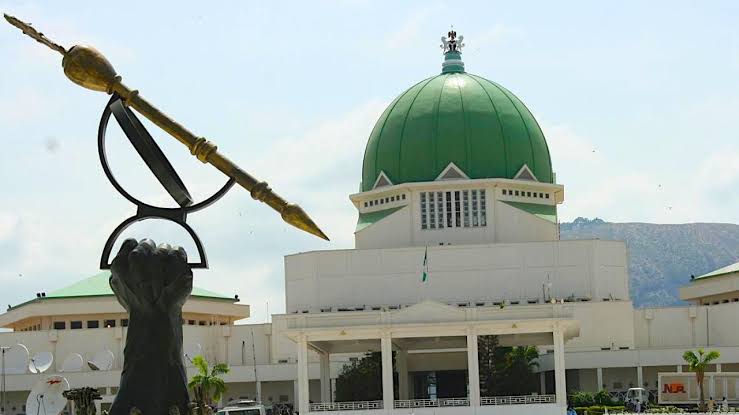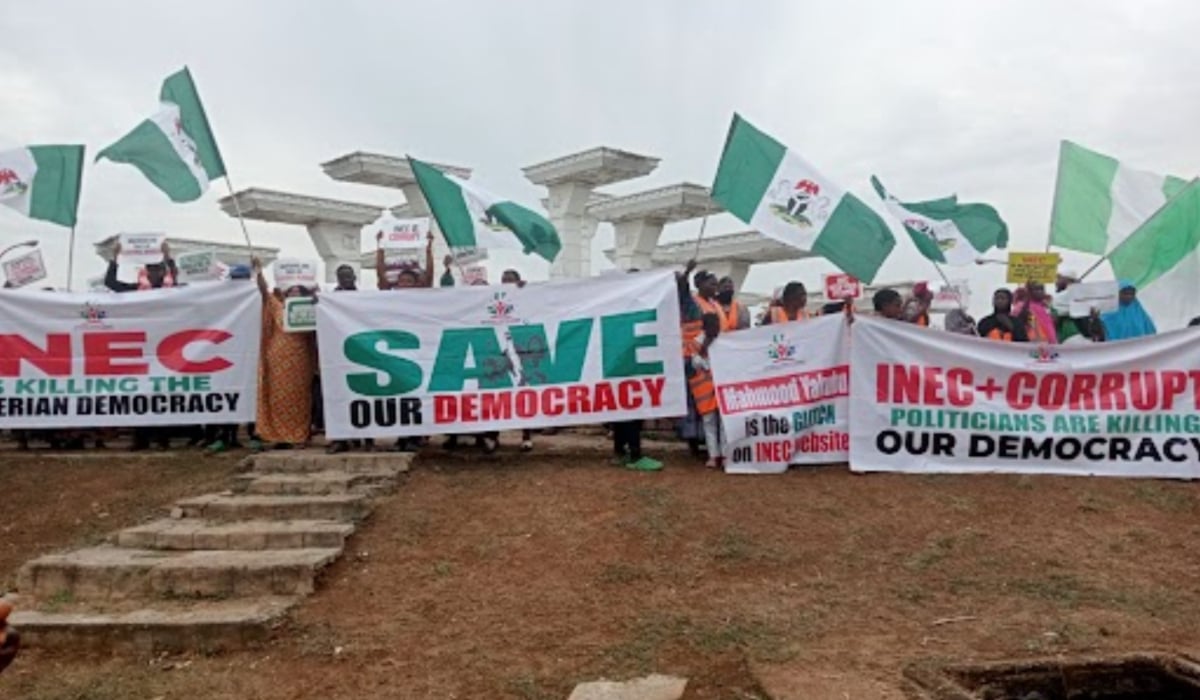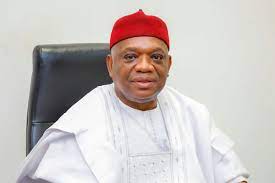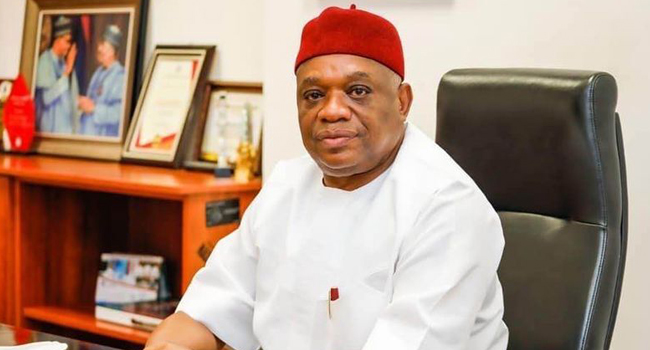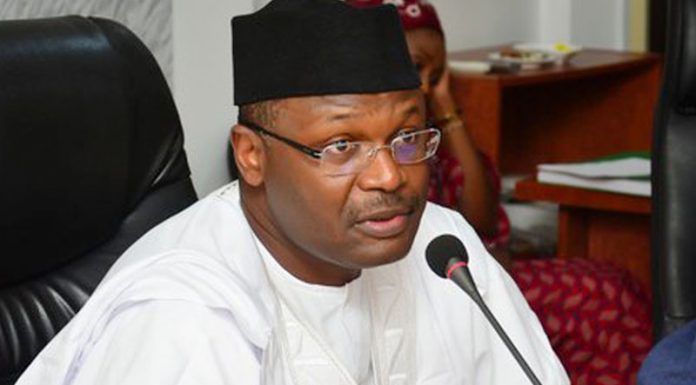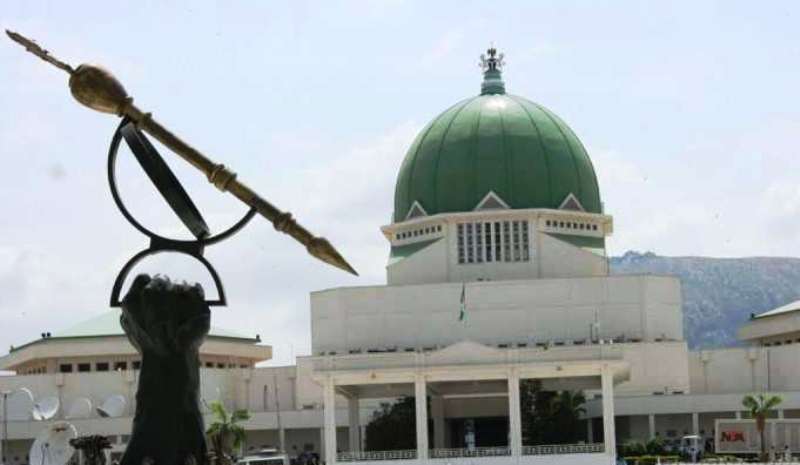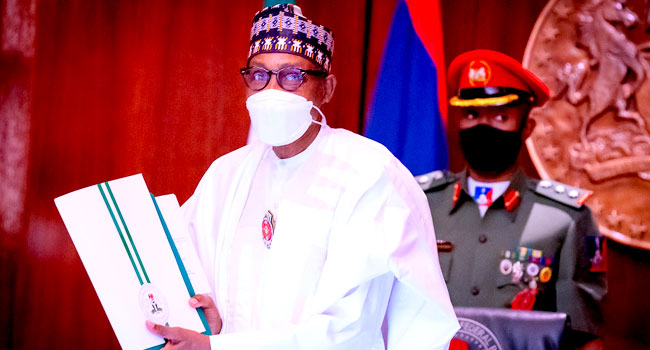By Mack Ogbamosa
Barring any unforeseen circumstances, the 10th National Assembly will be inaugurated in June this year. The lawmakers are expected to take off from where their predecessors stopped.
In the Fifth Alteration to the 1999 Constitution (as amended), the 9th National Assembly made some improvements. Even though they did not go far enough to douse the tension generated by the high level of agitations and insecurity in the country, they deserve applause for some of the bills passed and assented to by President Muhammadu Buhari.
These include the bill to liberate the judiciary and legislature from state governors by granting them financial autonomy, putting railways on the concurrent list so that state governments can run this means of transportation and most notably granting state governments power to generate, distribute and transmit electricity.
This is in line with the provision in Section 13 of the Concurrent Legislative List under the Second Schedule of the Constitution. The Section states that: “The National Assembly may make laws for the Federation or any part thereof with respect to-
- electricity and the establishment of electric power stations;
- the generation and transmission of electricity in or to any part of the Federation and from one State to another State…”
Although overdue, many Nigerians see the amendment on electricity generation, distribution and transmission as a most welcome relief.
There is no doubt that this is one area which has kept the nation in darkness and under-development for many years. Without power, many businesses have either died or relocated to other countries thereby worsening the state of unemployment and poverty in Nigeria today.
The immediate past Minister of State for Petroleum Resources, Mr Timipre Sylva, admitted to this ugly situation in a recent speech to the delegates at the 2022 Nigerian Oil and Gas Exhibition and Conference in Abuja, where he disclosed that about 62 per cent of Nigerians lack access to electricity and that the frequent breakdown of our National Grid costs the nation more than 25 billion United States dollars in economic loss yearly.
It is hoped that many states that have the capacity will take advantage of this devolution of power and provide regular electricity supply to their citizens in order to minimise this economic loss by reviving our industries, generating employment and reducing poverty.
Restructuring through Resources Control
Beyond this, there are still many critical areas which must be looked into if we are actually serious about practising federalism under a democracy in Nigeria
One of these is restructuring through resource control . What this means is that states should be allowed to have control of the mineral resources in their territories by amending the Constitutional provision that vests ownership and control of all mineral resources in the country in the hands of the Federal Government. This will affect
Section 44 (3) of the Constitution under compulsory acquisition of property which states that” Notwithstanding the forgoing provisions of this section, the entire property in and control of minerals, mineral oils and natural gas in , under or upon the territorial waters and the Exclusive Economic Zone of Nigeria shall vest in the Government of the Federation and shall be managed in such manner as may be prescribed by the National Assembly.” This provision is also reflected in Section 39 of the Exclusive Legislative List in the Second Schedule of the Constitution where these items are listed as mines and minerals, including oil fields, oil mining, geological surveys and natural gas.
There is no state in Nigeria that does not have mineral resources. These minerals are lying untapped because nothing has compelled the state governments to work towards financial independence for their states. The regular resort to the monthly Federal Allocation from Abuja is largely responsible for this. Although, the allocation is supposed to give financial succour to the states, it has contributed to the high degree of laziness and corruption at the state governments level.
It is regrettable that the outgoing government of Buhari under the All Progressives Congress (APC) which promised to restructure the country, did little or nothing to fulfil its promise. Fortunately, however, the incoming government at the Federal level is under the same political party and the President- elect, Senator Bola Ahmed Tinubu. Tinubu is a strong proponent of decentralisation of powers. He demonstrated this while he was governor of Lagos State. He created more local government areas called Local Development Council Areas (LCDA)s. He tried to introduce independent power project to generate and distribute electricity at the state level.
Even when the Federal Government under President Olusegun Obasanjo stopped the allocation of funds to the state because of what the central government considered as an illegal act by creating more LCDAs, the state government survived . Ìt sued the Federal Government and eventually won the case .
There is therefore, no doubt that Tinubu will be comfortable giving assent to any bill that will be in favour of devolution of powers to the states.
State/ Community Police as solution to insecurity
Another very crucial issue which the 10th assembly should urgently look into is the establishment of state and community police . It is no longer news that insecurity is the greatest challenge in the country today. Non state actors have taken over everywhere. They have invaded our farms, homes, roads, rail tracks , schools, streets , churches and mosques. If they are not terrorists, they are bandits. If they are not bandits, they are kidnappers.
The current situation where all our security forces are under the control of the federal government cannot solve the problem of insecurity. We do not have enough security men to man the country.
As I have said in my previous write-ups, state governors are not Chief Security Officers as it is erroneously believed.
The Constitution should be amended to give room for the creation of state and community police, who are answerable to the state command and the people of the state. They will work with the locals and traditional rulers who are familiar with our local terrain as well as being in touch with the people.
This will help curb insecurity, youth restiveness, inter- communal crisis, ethnic militancy and reduce unemployment among youths as more of them will be absorbed by the local police force.
This will in effect, lead to the amendment of
Section 45 of the Exclusive Legislative List of the Second Schedule of the Constitution which places the Police and other government security agencies established by law under the control of the Federal Government.
Justiciability/ Enforceability of Chapter II
Above all, the 10th assembly should give true meaning to Chapter II of the Constitution which deals with socio-economic rights. These rights which are under Fundamental Objectives And Directive Principles of State Policy include the:
-provision of security and welfare for the people;
-Provision of free and compulsory basic education as well as free secondary and tertiary education when resources are available;
– Provision of employment opportunities ; and
-Provision of adequate housing for the people.
Unlike the Fundamental Human Rights in Chapter IV , which include right to life, freedom of association, freedom of movement and freedom of expression, which are considered as political rights, and are enforceable, the rights in Chapter II are not enforceable.
Section 6(6c) of the Constitution bars the courts from entertaining any matter on justiciability of these rights. The Section states that:
“The judicial powers vested in accordance with the foregoing provisions of this section-
Shall not,except as otherwise provided by this Constitution, extend to any issue or question as to whether any act or omission by any authority or person or as to whether any law or any judicial decision is in conformity with the Fundamental Objectives
and Directive Principles of State Policy set out in Chapter II of this Constitution”
Apart from amending this section, the
lawmakers should also expedite action on “The establishment and regulation of authorities for the Federation or any part thereof to promote and enforce the observance of the Fundamental Objectives And Directive Principles of State Policy contained in this Constitution” in line with Section 60(a) of the Exclusive Legislative List
It is a mirage to think that we can have a government that is accountable when it cannot be challenged for not discharging its responsibilities.
Of what use are the freedoms in Chapter IV when a man is uneducated, unemployed and homeless?
Of what use is the State when it cannot serve its primary purpose of providing security and welfare for the people?
How meaningful is the essence of the social contract between the people and the government when the government cannot fulfil its obligations to the people?
The belief that the government does not have the resources to fulfil its obligations to the people is erroneous. Our leaders have been profligate with our resources. Instead of applying the available resources for the benefit of the people, they have been engaged in squandering them for their own selfish ends largely because there is no compelling legislation that would warrant performance of these obligations.
This has also raised the level of laziness, indolence and corruption in government at all levels.
The earlier these parts of the Constitution are amended by the 10th National Assembly, the better for the promotion of good governance in the country.
Ogbamosa, a legal practitìoner/ Communications consultant, wrote via mack_ogbamosa@yahoo.com.
